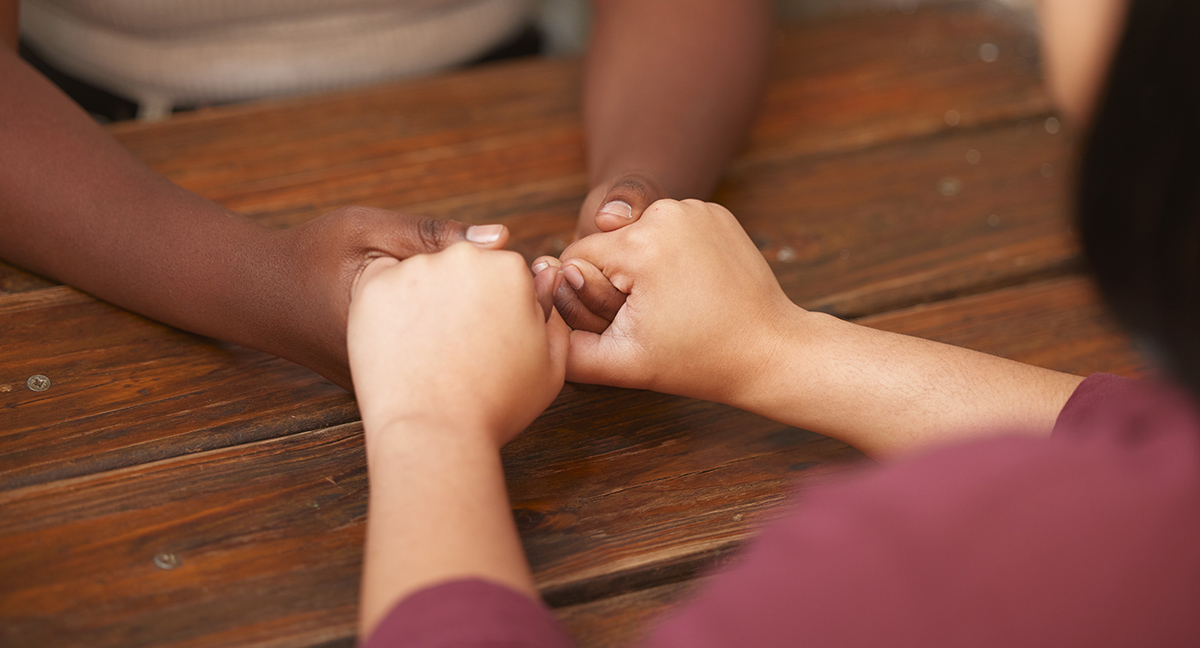If you are dating someone who was abused by a narcissist, understanding their experience is key to building a healthy relationship. This comprehensive guide will provide insights, support strategies, and examples to help you move forward together.
Table of Content
- Understanding the Narcissistic Abuse
- Building Trust When Dating Someone Who Was Abused by a Narcissist
- Recognizing Signs of Trauma in a Partner Who Was Abused by a Narcissist
- How to Support Someone Who Was Abused by a Narcissist
- Case Studies: Relationships After Narcissistic Abuse
- Professional Help and Therapy
- Conclusion
Understanding the Narcissistic Abuse
Narcissistic abuse leaves deep and lasting scars, particularly when you’re dating someone who has suffered this type of abuse. It’s essential to recognize and understand this abuse to offer support effectively, so let’s delve into what it involves:
Common Patterns of Narcissistic Abuse
First, let’s explore the common patterns that define narcissistic abuse:
- Manipulation: Narcissists often manipulate their victims, making them feel dependent and powerless.
- Gaslighting: This psychological trick makes the victim doubt their sanity and reality, and narcissists commonly use it.
- Emotional Neglect: Narcissists might ignore their partner’s feelings and needs, leading to feelings of worthlessness.
- Control and Dominance: Excessive control over partners is another common tactic, where narcissists dictate their partner’s actions.
- Devaluation: Belittling or demeaning their partners is also frequent, damaging their self-esteem and self-worth.
Effects of Narcissistic Abuse
Next, we need to recognize the profound and long-lasting effects of narcissistic abuse. Victims often suffer from anxiety, depression, PTSD, and other mental health challenges. Additionally, they may struggle with trust in future relationships, making dating complex.
Why Understanding Narcissistic Abuse is Vital
Lastly, if you’re dating someone who was abused by a narcissist, understanding these patterns is essential. It equips you to be empathetic and supportive, and also allows you to recognize triggers. Furthermore, this understanding helps you foster a safe environment for trust and intimacy to grow, creating a strong foundation for a loving relationship.

Building Trust When Dating Someone Who Was Abused by a Narcissist
Trust forms the cornerstone of any relationship. Yet, when dating someone who was abused by a narcissist, building this trust requires extra attention, sensitivity, and effort. Below, we’ll explore strategies to create a strong foundation of trust, taking into consideration the unique challenges that may arise.
Encourage Open Communication
Firstly, open communication is vital. You must encourage your partner to express their feelings, fears, and needs without judgment. Listen actively and reassure them that their thoughts and feelings are valid. Here’s how:
- Ask Open-Ended Questions: These promote deeper conversations and show that you care.
- Show Empathy: Validate their emotions by showing understanding and compassion.
- Respect Their Pace: Let them open up in their time. Don’t push them if they are not ready.
Establish Boundaries
Next, setting clear and consistent boundaries is crucial. Your partner may have had their boundaries ignored or violated in the past, so respecting their boundaries now will foster trust. Here are some ways to do this:
- Discuss Expectations: Talk openly about what both of you expect and need in the relationship.
- Respect Their Needs: If they need space or have specific requests, honor them without question.
- Create Safe Spaces: Build environments where they feel safe and in control.
Be Consistent in Your Actions
Lastly, consistency is key to building trust. Your actions and words must align, so follow through on what you say you’ll do. Furthermore, be patient and give them time to see that you are reliable. Here’s what you can focus on:
- Keep Promises: Even small promises matter. If you say you’ll call, make sure you do.
- Show Up: Be there for them, especially in challenging times.
- Provide Reassurance: Regularly remind them that you are there for them and that you care.
In conclusion, building trust when dating someone who was abused by a narcissist is a gentle process that demands understanding, patience, and consistency. By focusing on open communication, respecting boundaries, and ensuring that your actions match your words, you can create a strong and nurturing foundation for your relationship.

Recognizing Signs of Trauma in a Partner Who Was Abused by a Narcissist
If you’re dating someone who endured abuse by a narcissist, you need to recognize signs of trauma. Trauma can show up in various ways, and knowing these signs will help you offer empathetic and supportive care. Let’s explore the signs, their meanings, and your response.
Excessive Worry
Firstly, excessive worry might be present in your partner. This constant fear often reflects their past experiences. So, here’s what you can do:
- Reassure Them: Always remind them that safety surrounds them with you.
- Encourage Professional Help if Needed: Therapy might be an option if worry controls their life.
- Share Mindfulness Exercises: Doing these activities together promotes calmness.
Constant Feelings of Sadness
Next, constant sadness can signal unresolved emotional pain. So, you should:
- Give Emotional Support: Be there for them without judging.
- Engage in Healthy Activities Together: Positive activities can lift their mood.
- Think About Therapy: Professional help may further their healing.
Flashbacks
Flashbacks can suddenly take your partner back to painful memories. If you notice this, then you should:
- Stay Calm: Your calm presence helps them feel secure.
- Use Grounding Techniques: Help them return to the present with sensory activities.
- Seek Professional Help if Necessary: Therapists specialize in caring for this issue.
Intense Fear of Abandonment
Lastly, the fear of abandonment may plague your partner due to past neglect or betrayal. To ease this fear, make sure to:
- Talk Openly: Discuss fears and affirm your commitment regularly.
- Be Reliable: Your consistent actions build trust over time.
- Grow Trust Slowly: Recognize that this takes patience and ongoing effort.
In the end, recognizing signs of trauma in someone you’re dating who was abused by a narcissist requires more than just identifying symptoms. It calls for compassion, patience, and thoughtful support. By doing this, you create a relationship that acknowledges and begins to heal the past wounds.

How to Support Someone Who Was Abused by a Narcissist
Supporting a partner who was abused by a narcissist isn’t just a mere act of compassion; it’s a journey that demands deep understanding, patience, and commitment. The steps outlined below will help guide you through this delicate process, ensuring your partner feels validated, safe, and cared for.
Empathize with Their Feelings
First and foremost, empathy is key. Make an effort to understand your partner’s feelings, fears, and emotions. Try to put yourself in their shoes, showing compassion and acknowledgment without judgment or criticism. A warm hug, gentle touch, or simply being present can be more powerful than words.
Validate Their Experiences
Next, always validate your partner’s experiences. Dismissing or minimizing their feelings can be retraumatizing. Acknowledge their pain, and let them know it’s natural to feel the way they do. It’s vital to say things like, “I believe you,” and “Your feelings are valid,” to build a trusting relationship.
Create a Safe Environment
Creating a physically and emotionally safe environment is another crucial step. Ensure that your home is a place of comfort and security. Small gestures like respecting their personal space, honoring their wishes, and establishing clear boundaries can make a big difference.
Encourage Professional Help
Therapy can be instrumental in healing from narcissistic abuse. Encourage your partner to seek professional help if they are comfortable doing so. Respect their decision, and if they choose to see a therapist, offer to accompany them to appointments if they wish.
Help Them Reconnect with Others
Often, narcissistic abuse can lead to social isolation. Gradually help your partner reconnect with friends and family. Encourage social activities that feel safe and enjoyable, and be patient, recognizing that this may take time.
Be an Attentive and Caring Listener
Finally, always be an attentive and caring listener. Sometimes, your partner might need someone who listens more than someone who advises. Offer a listening ear without interrupting, judging, or trying to “fix” their problems. Just be there, fully present and supportive.
In conclusion, supporting someone who was abused by a narcissist is a delicate and complex process. It requires unwavering empathy, active validation, and a consistently safe and compassionate environment. By following these steps, you can help your partner on their path to healing, fostering a loving and healthy relationship.

Case Studies: Relationships After Narcissistic Abuse
Real-life examples provide invaluable insights into the complexities and triumphs of dating someone who was abused by a narcissist. By exploring different relationships and their unique paths to healing, we can learn vital lessons about trust, empathy, and resilience. Let’s delve into three diverse relationships and how each couple navigated through the healing process.
Case Study 1: Emily and James
Emily, who was abused by a narcissist in a previous relationship, found solace and understanding in James. When James started dating Emily, he took the initiative to learn about narcissistic abuse and its impacts. They focused on building trust through open communication, recognizing Emily’s triggers, and providing consistent support. Together, they attended therapy and support groups, forging a stronger bond. As time progressed, their commitment to each other’s well-being led to a thriving, loving relationship.
Case Study 2: Thomas and William
Thomas’s history of being abused by a narcissist presented initial challenges in his relationship with William. These hurdles, however, became opportunities for growth and connection. Together, they sought professional help to understand and navigate the emotional landscapes scarred by abuse. By creating a nurturing and accepting environment, they cultivated trust and empathy. Their journey, filled with ups and downs, led to a loving connection that celebrated their individuality and partnership.
Case Study 3: Samantha and Rebecca
Samantha and Rebecca’s relationship was marked by a shared commitment to work through Rebecca’s past abuse by a narcissist. Engaging in open dialogue, shared experiences, and individual therapy, they faced the shadows of the past with courage and determination. Samantha’s unwavering support and Rebecca’s willingness to heal created a synergistic process that deepened their bond. Through persistence, empathy, and love, they succeeded in building a fulfilling and joyful relationship that honored both their strengths and vulnerabilities.
In conclusion, these case studies illuminate the diverse and intricate paths that relationships can take when dating someone who was abused by a narcissist. They highlight the significance of empathy, professional support, and personal growth in building strong, loving connections. Each story is a testament to human resilience and the transformative power of love and understanding.
Professional Help and Therapy When Dating Someone Who Was Abused by a Narcissist
Dating someone who was abused by a narcissist presents unique challenges that often require professional intervention to heal and grow. Therapeutic options, like Cognitive-Behavioral Therapy (CBT), support groups, and online resources, can play an indispensable role in this process. Let’s explore these therapeutic avenues:
Cognitive-Behavioral Therapy (CBT)
CBT is a widely recognized approach that focuses on identifying and changing negative thought patterns. For someone who has suffered narcissistic abuse, this therapy can assist in recognizing manipulative behaviors and rebuilding self-esteem. By working with a licensed therapist trained in CBT, individuals can develop strategies to respond positively to triggers and regain control over their emotional lives.
Support Groups
Support groups offer a safe space for individuals to share their experiences, gain insights, and connect with others who have undergone similar challenges. These gatherings, whether in person or online, foster a sense of community and understanding. They allow individuals to feel validated and supported, providing a nurturing environment where healing can flourish.
Online Resources
The digital age has provided a plethora of online resources tailored to those who have faced narcissistic abuse. Websites, forums, video content, and virtual therapy options offer accessible support from professionals and peers alike. By engaging with these resources, individuals can find information, community, and professional guidance without geographical constraints.
Couples Therapy
When dating someone who was abused by a narcissist, couples therapy can be a transformative option. Led by a therapist specializing in trauma and relationship dynamics, couples therapy facilitates open communication and trust-building. It can create a roadmap for the relationship to navigate the complexities of past abuse and foster a healthier connection moving forward.
In conclusion, professional help and therapy are crucial when dating someone who was abused by a narcissist. These interventions, tailored to the unique needs and challenges of each individual and relationship, provide a scaffold for growth, healing, and love. They serve as essential tools in the journey towards a healthy and fulfilling relationship.
Conclusion: Supporting Someone Who Was Abused by a Narcissist
In conclusion, dating someone who was abused by a narcissist is a complex and delicate journey. It requires not only patience and understanding but a genuine and committed effort to support the healing process. From recognizing signs of trauma to actively seeking professional help, each step is vital in fostering a nurturing environment for your partner.
Building trust and creating a safe space for open communication are essential elements that form the cornerstone of a loving relationship. By engaging in therapy, either as a couple or individually, and adhering to the guidance provided in this guide, you can navigate through the challenges together. It’s a process that requires effort, empathy, and unwavering support, but the rewards are profound.
While the path may seem daunting at first, with the right approach and commitment, building a loving and successful relationship with someone who was abused by a narcissist is not just possible; it’s within reach. Embrace the journey with compassion and determination, and you’ll find the connection that both you and your partner deserve.








Leave a Comment